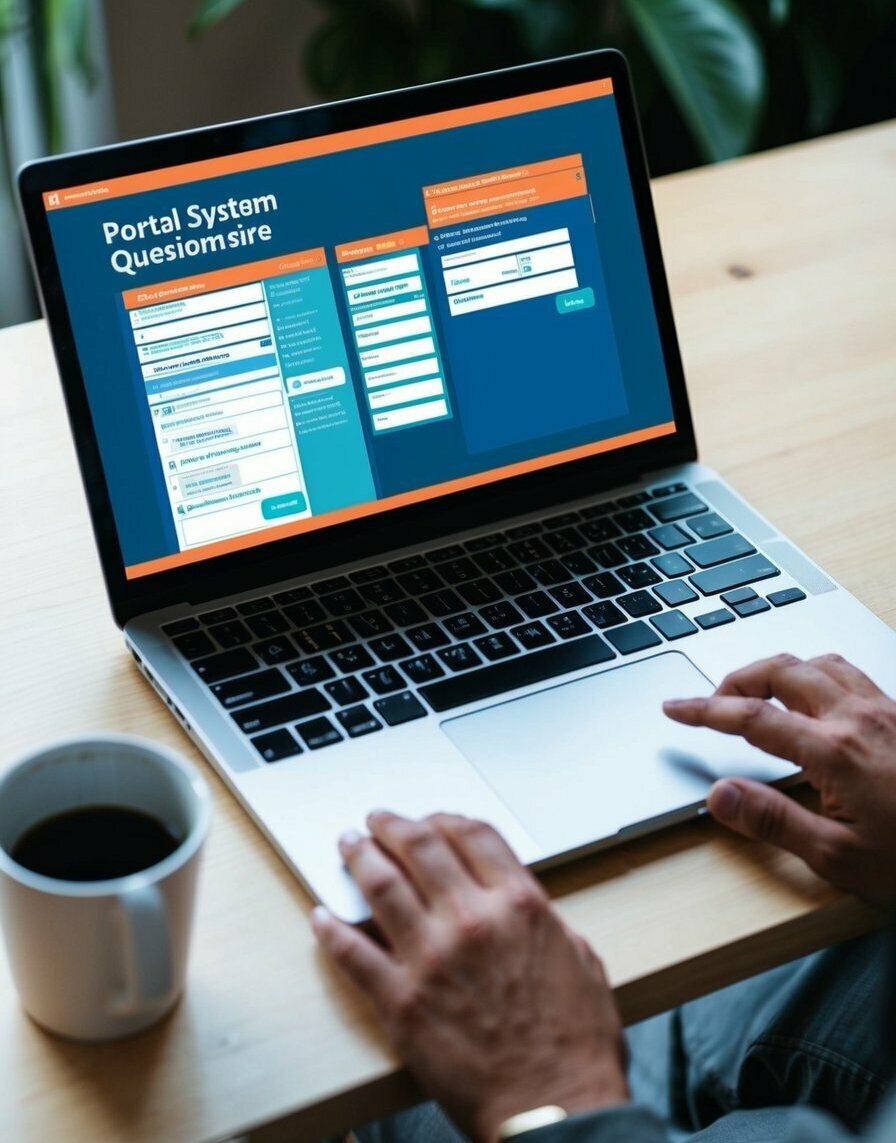What Are Tender Clarification Questions?
Tender clarification questions allow bidders to ask for more details about a tender before submitting your bid. You are seeking clarity to ensure you have all the information required to know whether you want to bid and/ or to write the very best tender response.
These questions help clear up any confusion about the tender requirements. You can ask about specific points that seem unclear or get more information on certain aspects of the project.
Asking clarification questions shows you're taking the tender seriously. It also helps you prepare a more accurate and competitive bid.
You typically submit these questions through a designated tender portal or email address. The buyer's team will review and respond to your queries.
It's important to ask your questions early in the tender process. This gives you enough time to use the answers in your bid preparation. In public sector tenders within the procurement timetable, there will be a deadline for asking clarification questions, which is well worth getting into the diary!
Remember, other bidders can often see the questions and answers too. So be careful not to reveal your bidding strategy or unique ideas in your questions.
Asking good clarification questions can give you an edge in the bidding process. It helps you understand the buyer's needs better and tailor your proposal accordingly.
You might ask about:
- Specific technical details
- Contract terms and conditions
- Evaluation criteria
- Submission requirements
By asking clarification questions, you:
- Reduce the risk of misunderstanding the buyer's needs
- Improve the quality of your bid
- Show your interest and engagement in the tender.

Common Examples of Clarification Questions
Clarification questions in tenders or ITTs often focus on key areas that bidders need more information about. These typically include the project scope, important deadlines, technical specifications, and contract terms.
Typical Areas of Clarification
Scope questions might ask:
- "Can you provide more details on the expected deliverables?"
- "Is [specific task] included in the project scope?"
- "What are the boundaries of our responsibilities?"
Deadline queries often include:
- "Is there flexibility in the proposed timeline?"
- "What is the expected start date?"
- "Are there any key milestones we should be aware of?"
For specifications, bidders may ask:
- "Can you clarify the required technical standards?"
- "Is [specific technology] acceptable for this project?"
- "What are the minimum performance requirements?"
Contract term questions might be:
- "Can you explain the payment schedule?"
- "What are the conditions for contract renewal?"
- "Are there any specific insurance requirements?"
Always check the tender documents carefully before asking these questions. Make sure the answers aren't already provided to avoid looking unprepared.
Prefer to discuss with our team?
Contact usAnalysis of Procurement Answers from Clarification Questions
We reviewed the clarification answers provided by procurement teams from 30 different tenders! And these are the main areas:
Submission Requirements
- Clarification on which documents are required for submission.
- Instructions on how to submit tenders via the specified portal.
- Guidance on deadlines for submissions and clarifications.
Evaluation Criteria
- Details on how bids will be evaluated based on quality, price, and social value.
- Explanation of the scoring methodology and weightings.
- Clarification on the requirements for specific lots.
Compliance and Accreditation
- Requirements for various certifications such as Cyber Essentials Plus, ISO 27001, and ISO 9001.
- Information on the necessity of Professional Indemnity Insurance and other mandatory insurances.
- Guidance on health and safety assessments and Constructionline accreditations.
Framework Agreement and Call-Off Terms
- Details on the framework agreement structure and its terms and conditions.
- Clarifications on the call-off process and the use of mini-competitions.
- Explanation of the contract terms applicable during the call-off stage.
Pricing and Financials
- Guidance on the pricing structure and the inclusion of all associated costs in unit prices.
- Details on how pricing is to be submitted and evaluated.
- Clarification on indexation and how price increases will be managed over the framework’s life.
Technical Specifications and Delivery
- Details on the specific technical requirements for each lot.
- Clarifications on the scope of works and deliverables.
- Information on the necessary equipment, software, and other components required for service delivery.
Social Value and Environmental Impact
- Requirements for social value commitments and how they will be evaluated.
- Details on environmental impact assessments and carbon reduction plans.
- Guidance on the submission of social value proposals.
Subcontracting and Consortiums
- Guidance on the use of subcontractors and supply chain requirements.
- Clarification on how to bid as part of a consortium.
- Details on the responsibilities and requirements for key subcontractors.
Other Clarifications
- Clarifications on specific terminology used in the tender documents.
- Details on the support available for technical issues with the submission portal.
- Responses to various bidder-specific questions and scenarios.

What To Consider When Asking Questions
Asking clarification questions during a tender process requires careful thought and strategy.
When you submit a question, remember that the answer will be shared with all bidders. This means your competitors will see both your question and the response. Your details will be protected but it's the details of the question and likely answer which you need to consider.
At the same time, don't let this stop you from asking important questions. If you need clarity on a key point, it's better to ask than to make assumptions. Often they can be asked but framed in more general terms. For example, ask about overall requirements rather than specifics of your proposed solution - as long as you still get the answer you need.
If you need to ask about a particular approach, consider phrasing it hypothetically. "Would XYZ be an acceptable approach?" rather than "We plan to do XYZ."
Review your questions before submitting. Look for any that might give away too much about your strategy or weaknesses. Rephrase or remove these if needed.
It's a balance - you need enough information to create a strong bid, but without revealing your competitive edge.
Why Some Tenders Have Many Clarification Questions
Complex tenders can lead to a flood of clarification questions. When a project involves many moving parts or technical details, bidders may struggle to understand every aspect.
Poorly defined requirements are another common cause. Vague or ambiguous language in tender documents can leave bidders unsure about what's expected. This uncertainty prompts them to seek more information.
Sometimes, the sheer volume of documents and clarification questions can be overwhelming. Bidders might miss key details and need to double-check their understanding. A bid writing process, which ensures you pick up on changes is key!
Experienced bidders often ask more questions. They know the importance of getting all the facts before submitting a bid. This thoroughness can lead to a higher number of queries.
Need bid support?
Contact us todayImportance Of Monitoring Clarification Responses
Keeping track of clarification responses is crucial for your success in the tender process. It helps you stay informed and make smart decisions about your bid.
Regularly Reviewing Responses To Stay Updated During The Bid
Check for new responses often. Set up a system to get alerts when new answers come in. This way, you won't miss important details.
Read each response carefully. Look for information that might change your bid strategy. Some answers could affect your pricing or approach.
Take notes on key points. Create a list of the most important details from each response. This will help you remember them later.
Share updates with your team. Make sure everyone, including technical subject matter experts, working on the bid knows about new information. This keeps your whole team on the same page. And of course use the clarification process to improve your bid based on what you learn.
Don't be afraid to ask follow-up questions if something isn't clear. It's better to ask when you can rather than to make a mistake in your bid.
Ensure Your Final Bid Aligns With Updated Information From The Clarifications
When reviewing clarifications, create a checklist of all changes and new details. Go through your bid draft and update any affected sections. Pay close attention to pricing, technical specs, and deadlines.
Double-check that you've addressed all clarification points in your final bid. This shows the buyer you're thorough and attentive to their needs.
Before submitting, have a colleague review your bid against the clarifications. They might spot something you've missed.
Keep a record of all clarifications and your responses. This can be helpful if questions arise later in the process.
Remember, clarifications are meant to level the playing field for all bidders. Use them to strengthen your proposal and stand out from the competition.




